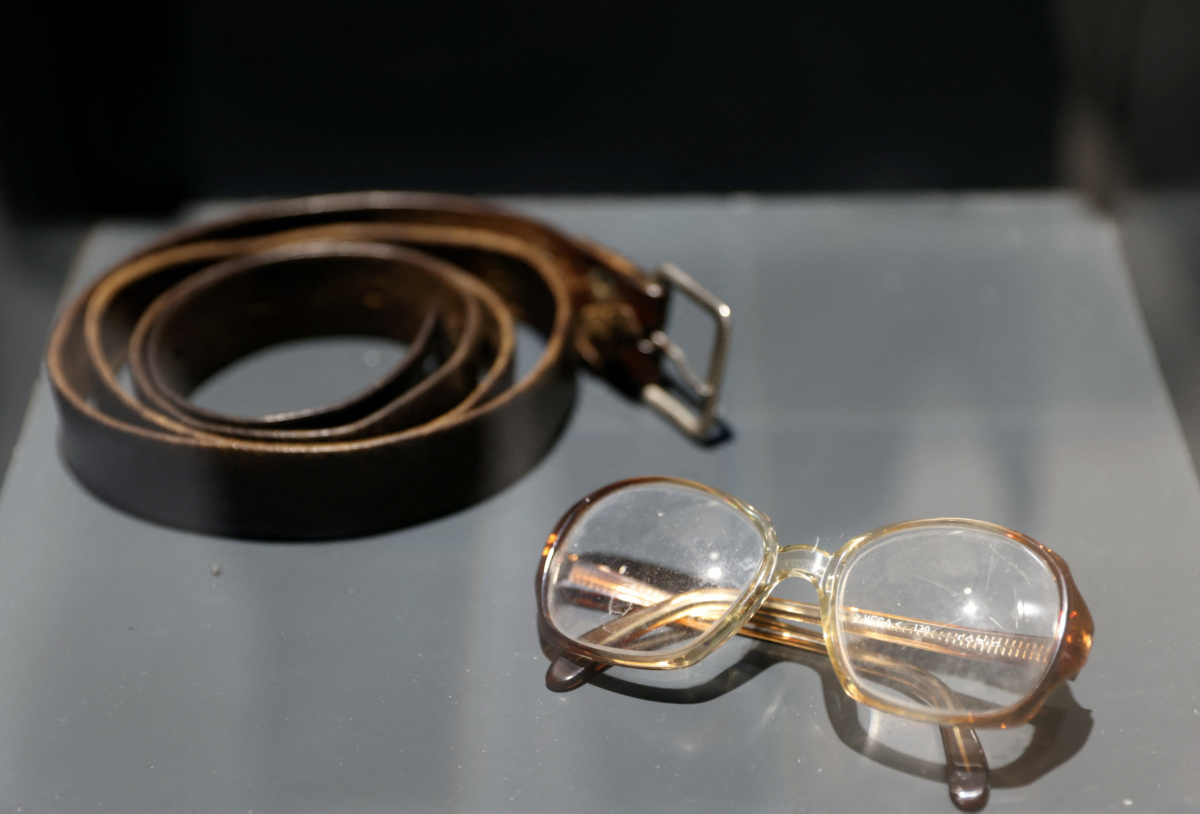Srebrenica, Bosnia & Herzegovina
Reuters
Survivors of the genocide at Srebrenica are hoping their accounts and keepsakes of families of some of the 8,000 Muslim men and boys who were killed will help dispel the denial of the massacre that is the heart of a political crisis in Bosnia.
One hundred survivors gave video testimonies and family memorabilia for the exhibition prepared by the Balkan Investigative Reporting Network and the Srebrenica Memorial Centerthat opened on Tuesday.

Artefacts collected from 100 survivors of the 1995 massacre of about 8,000 Muslims by the Bosnian Serb forces during Bosnian war are displayed at the Srebrenica genocide memorial centre in Potocari, Bosnia and Herzegovina, on 22nd February. PICTURE: Reuters/Dado Ruvic.
“This memorial room aims to take the Srebrenica narrative back to personal experiences of people and help in decreasing the denial of genocide and its misuse for political purposes,” said Denis Dzidic, the BIRN director in Bosnia.
In July, 1995, the Bosnian Serb forces led by General Ratko Mladic overran the United Nations “safe zone” of Srebrenica and massacred the men and boys in what is widely seen as Europe’s worst atrocity since World War II.
Hasan Hasanovic, the only male in his family who survived the genocide, donated for the exhibition a letter he wrote in 1994 to his cousins in the Netherlands. The Dutch soldier who took the letter to post it could not find his cousins and returned the letter to Hasanovic 23 years later.
Hasanovic, who authored two books on the Srebrenica massacre and works as a custodian in the SMC, says he has devoted his life to tell the world the truth about the crime, decreed to be genocide by two international courts but denied by the Bosnian Serbs and their wartime ally Serbia.
Last summer, after the Bosnia international peace envoy imposed a law criminalising genocide denial, the Serbs walked out of national institutions, blocking the work of the central government.
They also took steps to pull Bosnia’s autonomous Serb Republic, where Srebrenica is located, from the joint armed forces, the tax system and judiciary, causing great concern among the Muslim Bosniaks living there.
Ahmed Hrustanovic, an imam who lost his father and all his male relatives in the Srebrenica massacre, says the recent developments have prompted him to send his pregnant wife to her family in Sarajevo for fear that something bad may happen.
“It all brought back the feelings of fear,” Hrustanovic told Reuters. “If this situation continues, it will be impossible to continue to live here.”






